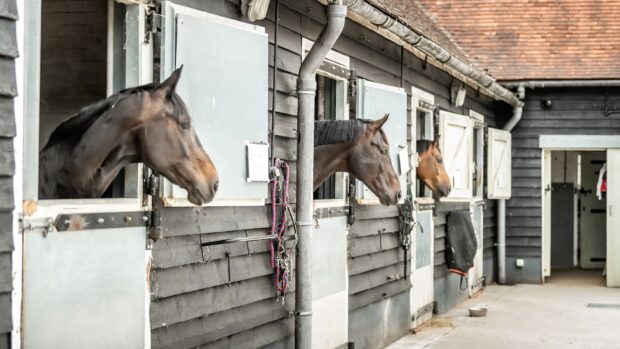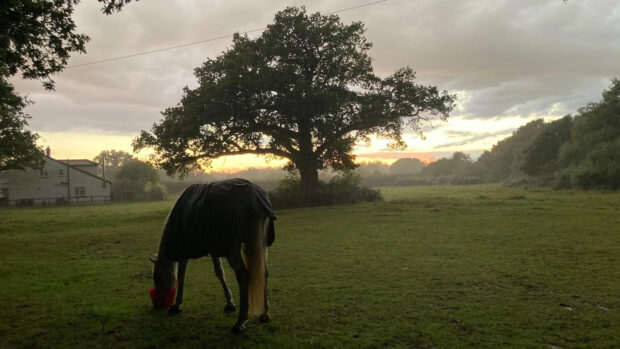Working young horses, the importance of turnout and the perils of “exaggerated” over-care are among the issues covered in a report on ethical issues concerning the industry.
COFICHEV, the Swiss council for the equine industry, first produced Reflections on Ethics and the Horse in 2011, with the aim of considering the ethically correct relationship with the horse as a partner. A decade later, COFICHEV “felt the need to revisit the topic”, and has published a “revised and greatly expanded” version, taking into account recent scientific research.
A spokesman for the council said debate on the acceptability of the use and involvement of horses has “spread to the general population”, and that the report “offers a guide to the use of equines that appeals to personal responsibility and always focuses on animal welfare”.
The report opens by stating that an “ideal and absolute harmony is impossible to achieve”.
“Even so, it behoves us – and it is our moral responsibility – to question the choices we make through our freedom to do right or wrong,” it states.
“Moreover, legal rules evolve along with the morals of a society and do not, themselves, have a moral character. Should we therefore only apply the laws of the moment and consider that anything that is not forbidden remains implicitly allowed? Or, on the contrary, are we capable of going beyond mere legality and asking ourselves: if we want to do what’s right, or avoid doing what’s wrong, how can we adjust our behaviour?”
The report states that society’s view on the industry has changed, with many practices called into question and threatening horse sport’s social licence to operate.
“COFICHEV supports the principle of personal responsibility towards the horse,” it states, adding that all owners and keepers should keep up to date with advancements in knowledge of what constitutes ethical, welfare-led management.
“From an ethical point of view, it defends the possibility of employing equids, provided that certain imperatives are respected. Only overriding interests can justify the strains. In addition, the day-to-day conditions of management, work, and transport, as well as end-of-life decisions, must respect essential welfare standards based on scientific studies.”
The report states that humans must uphold each animal’s inherent worth, in all dealings, “and hold each animal in high moral regard, independent of our own impressions, opinions, and experiences”, as well as irrespective of the horse’s financial value.
On movement, the report says walkers and treadmills cause an “unnatural situation”, and “must never replace free movement in the open air”.
It covers “exaggerated or inadequate care”, stating that some management is “aimed only at modifying aesthetic features or facilitating the animals’ employment”, citing whisker-trimming as an example, and adds that many owners “feel obliged to rug their horses”, when this could cause harm.
It speaks against tack such as draw reins that “counteract the horse’s nature and biomechanics” and devices that impair hearing or vision, such as earplugs and thick ear coverings.
“Essential corrective measures include checking equipment, becoming much more knowledgeable about indicators of poor welfare, and learning how to interpret those measures,” the report states.
Working young horses is covered; the report refers to controversy over when is the right age, as some believe initial training should not start until horses are six. But among other evidence, the report quotes recent research that found “equine athletes benefit significantly if they start exercising when they are young”.
“Early exercise helps strengthen the musculoskeletal system and improves the functional longevity of sport horses and racehorses. Indeed, bone tension and compression are essential for proper adaptation and normal, continuous growth,” it states. “By contrast, lack of activity in the early months (stall confinement) delays biomechanical and musculoskeletal tissue development (bones, tendon, and joint cartilage).”
In its conclusion, the report finds the main responsibility for ethical management of horses lies with those who work in the industry and care for them, but organisations must play their part by taking an ethical perspective in setting rules. It also finds “the knowledge necessary for the development of an adequate ethical attitude is lacking in several areas”, and recommends more research, adding that the report “emphasises the overriding importance of scientific findings”.
“In conclusion, it is reasonable to assume the public will continue to express strong and legitimate expectations of the equine industry,” the report states. “We consider it necessary to not leave the duty of vigilance solely to animal protection movements or to the authorities. If the industry is to retain its social legitimacy, people working with horses and organisations must prevent problems in the first place… more specifically, they must give top priority to the welfare of the equids, and respect for their inherent worth and their subjectivity, and not just focus on improving these points for the benefit of human beings.”
World Horse Welfare CEO Roly Owers told H&H that the charity “applauds the authors” of the report, with its centring on the horse-human partnership and the importance of personal responsibility.
“We believe that it goes to the heart of what equestrianism needs to consider in order to maintain and strengthen its social licence to operate,” he said. “The authors focus squarely on respecting the dignity and welfare of horses throughout their lives and stress the importance of ethics and scientific evidence to underpin our approach to horses.
“The report rightly highlights the responsibilities of both equestrian organisations and individuals throughout a horse’s life, drawing in the ethics of how horses are bred, managed, transported, and used in equestrian sport, as well as end-of-life decisions. Everyone involved with horses should engage with the concepts in this document to ensure that welfare and ethics are at the heart of our decision-making in equestrianism.”
You might also be interested in:

‘Will we be riding in 20 years’ time?’ Horse world must ‘walk the talk’ for sport to survive

Better a week early than a day late: the hows and whens of equine euthanasia

Subscribe to Horse & Hound magazine today – and enjoy unlimited website access all year round
Horse & Hound magazine, out every Thursday, is packed with all the latest news and reports, as well as interviews, specials, nostalgia, vet and training advice. Find how you can enjoy the magazine delivered to your door every week, plus options to upgrade your subscription to access our online service that brings you breaking news and reports as well as other benefits.




